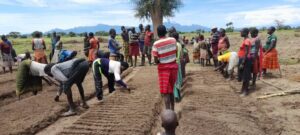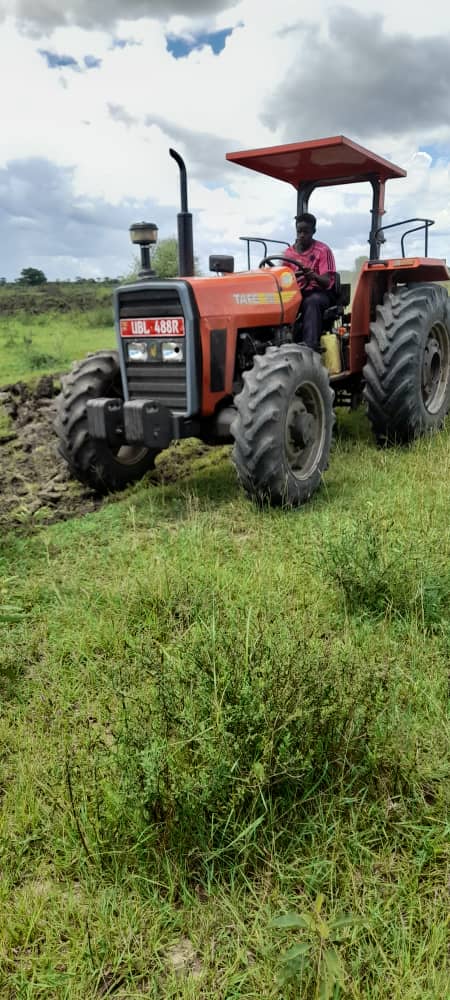Caritas Moroto Diocese, in collaboration with Action Against Hunger (ACF), has given substantial support to farmers in Nabilatuk Sub-County, facilitating the ploughing of 65 acres of land and the establishment of 5 block farms under the auspices of the 3-year Karamoja Livelihoods and Income Opportunities project (KLIO).
This intervention will address the Sustainable Development Goals: No Poverty and Zero Hunger, respectively, which are crucial for the Karamoja region since it has been particularly susceptible to food shortages due to unpredictable weather patterns.

According to Nakong Alice Butong, the Project Officer of KLIO, farmers have been assisted in land preparation, provided with vegetable seedlings, and various vegetables such as eggplants, Sukumawiki, onions, and carrots have been cultivated.
She urged farmers to engage in selected crop enterprises, including groundnuts, maize, sorghum, beans, and cassava, within their block farms.
In a bid to combat land degradation, Caritas Moroto Diocese also distributed 2,595 trees to smallholder farmers in Nabilatuk District as part of the Restore Africa Project. The 5-year initiative, which started in 2023, focuses on land restoration and livelihood improvement, aiming to foster sustainable livelihoods.
According to the Project Manager of Restore Africa, Awas Gregory Koryang, the project covers various tree species, including fruit trees, timber trees, herbal and medicinal trees, and soil fertility enhancers.
Beneficiary farmer Fr. Henry Drajeru, who received 300 trees, emphasized their role in environmental improvement, particularly in combating charcoal burning. He strategically selected timber trees to secure future income and demarcate land boundaries.
Similarly, smallholder farmer Lobur Lele Marius, who received 100 trees, planted them in Lokwamor to enhance environmental greenery and serve as windbreakers.
The project operates across 4 sub-counties, targeting 8,460 smallholder farmers to plant 600,000 trees through both planting and farmer-managed natural regeneration sites.
The Restore Africa project extends its reach to two districts in south Karamoja, including Nabilatuk and Nakapiripirit, with a duration until 2027. Its main goal is to restore 33,600 hectares of land and benefit 21,150 households.
Evalyne Akudo
Communication Officer,
Nabilatuk District















